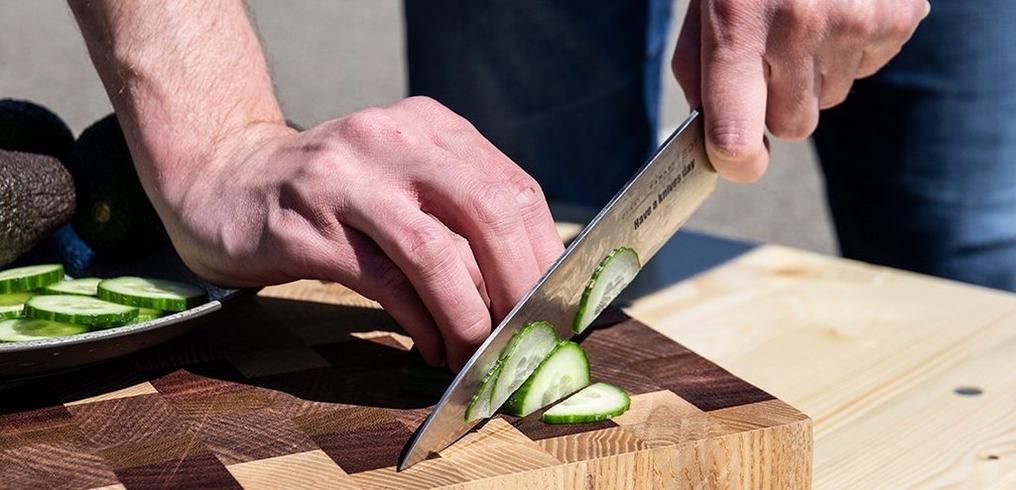As a kitchen professional, choosing the right tools can make or break your culinary experience. Among these tools, knives stand out as paramount. When it comes to high-quality kitchen knives, two countries often come to mind: Germany and Switzerland. This article delves into the nuanced differences between German vs Swiss knives, helping you make an informed decision for your kitchen endeavors.

Historical Context and Craftsmanship
The history of knife-making is rich and intricate. German knives have a long-standing tradition rooted in the town of Solingen, known as the 'City of Blades.' This region has been producing knives for centuries, with a reputation for durability and balance. You can explore more about the history of German knife-making to appreciate their craftsmanship.
On the other hand, Swiss knives, often associated with the iconic Swiss Army Knife, are known for their precision and multi-functionality. The Swiss knife-making tradition emphasizes versatility, which appeals to both culinary professionals and outdoor enthusiasts.
Design and Functionality
When comparing German vs Swiss knives, design and functionality are key aspects to consider. German knives typically feature a thicker blade, providing robustness and heft. This design is ideal for chopping tasks, offering a balanced feel that many chefs appreciate. If you're interested in the specifics of German knife construction, you might find the details on the best steel for German knives insightful.
Swiss knives, however, are renowned for their lightweight and precise blades. The slim profile is perfect for intricate tasks like slicing vegetables or filleting fish. The ergonomic handle design further enhances control, making it a favorite among professionals who value precision over power.
Blade Material and Edge Retention
The choice of blade material significantly influences a knifes performance. German knives are often forged from high-carbon stainless steel, which offers excellent edge retention and corrosion resistance. This material ensures that the knife remains sharp over prolonged use, an essential feature for busy kitchens.
Swiss knives, while also made from high-quality stainless steel, are engineered for exceptional sharpness right out of the box. Their edge retention might not match that of their German counterparts, but their ease of sharpening compensates for this, allowing chefs to maintain a razor-sharp edge with minimal effort.
Maintenance and Longevity
For professional chefs, the durability and maintenance of their tools are crucial. German knives, with their robust build, can withstand rigorous use and are less prone to chipping. However, they require regular honing to maintain their edge.
Swiss knives, with their precision engineering, demand careful maintenance to preserve their sharpness. They are typically more delicate, requiring a gentle hand when handling and sharpening. To avoid common mistakes, consider reading about knife sharpening myths.
Cost and Accessibility
Price is always a consideration when investing in kitchen tools. German knives are generally more expensive due to their renowned craftsmanship and durable materials. However, this investment often pays off in longevity and performance.
Swiss knives, while slightly more affordable, offer excellent value with their high-quality build and precision. They are an accessible option for chefs looking for reliable performance without breaking the bank.
Conclusion
In the debate of German vs Swiss knives, the choice ultimately depends on your specific needs and preferences. German knives offer durability and power, making them ideal for heavy-duty tasks. Swiss knives provide precision and lightness, perfect for detailed work. As a kitchen professional, evaluating these factors will guide you to the perfect knife that complements your culinary style.

FAQs
What tasks are German knives best suited for?
German knives excel in tasks that require power and robustness, such as chopping and butchering. Their thick blades and balanced design make them ideal for handling tougher ingredients.
Are Swiss knives good for professional kitchens?
Yes, Swiss knives are excellent for professional kitchens, particularly for tasks requiring precision. Their lightweight design and sharpness make them suitable for delicate slicing and intricate work.
How should I maintain my German or Swiss knives?
To maintain your knives, regularly hone them to keep their edge sharp. For German knives, consider professional sharpening occasionally. For Swiss knives, gentle handling and regular honing will preserve their precision.


























